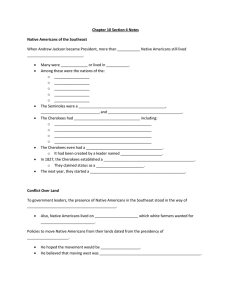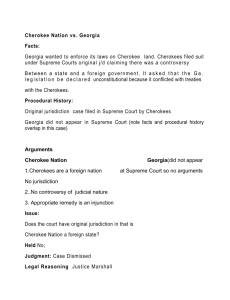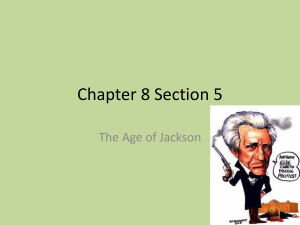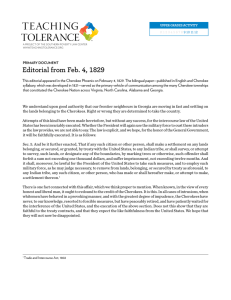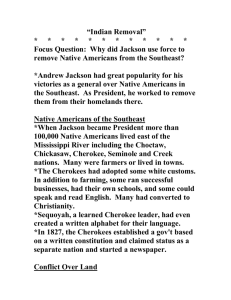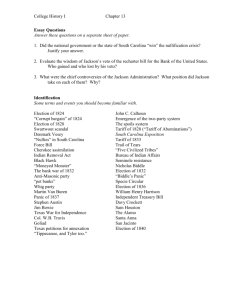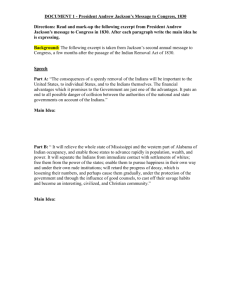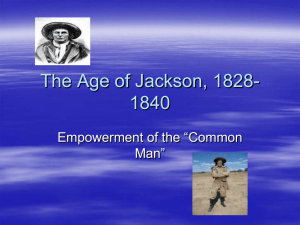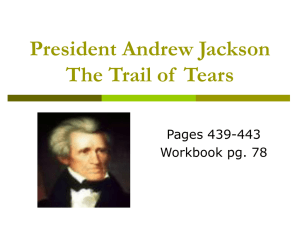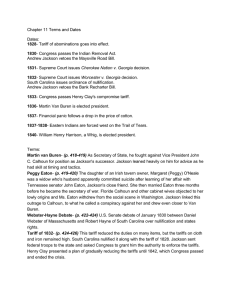Economy and American Society
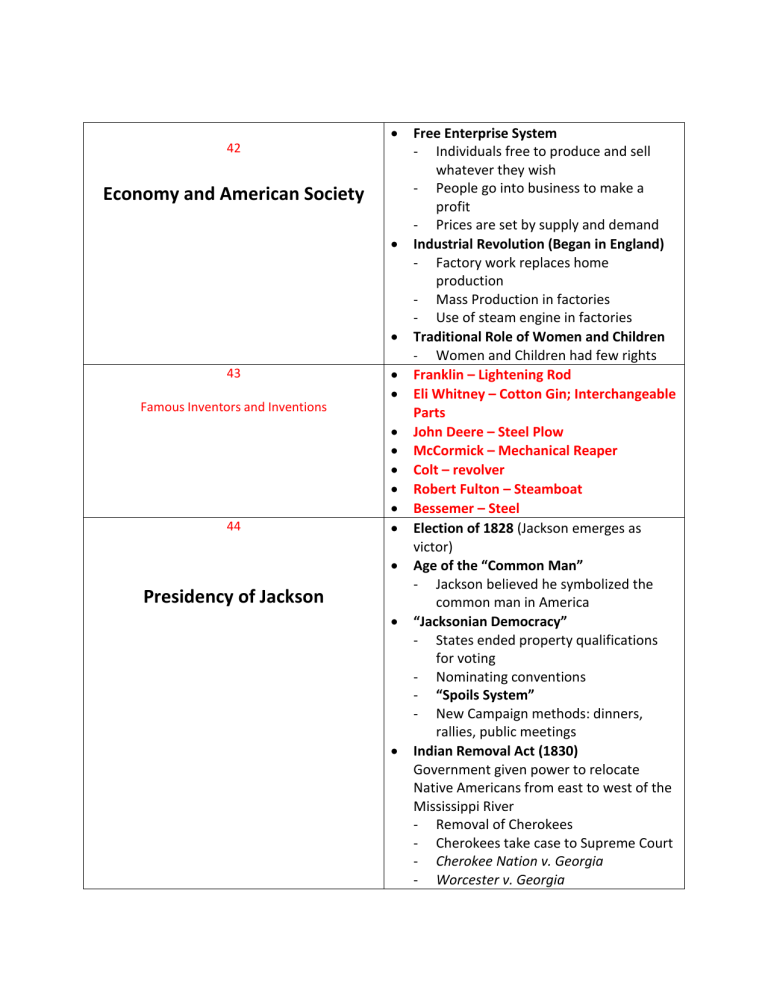
42
Economy and American Society
43
Famous Inventors and Inventions
44
Presidency of Jackson
Free Enterprise System
Individuals free to produce and sell whatever they wish
People go into business to make a profit
Prices are set by supply and demand
Industrial Revolution (Began in England)
Factory work replaces home production
Mass Production in factories
Use of steam engine in factories
Traditional Role of Women and Children
Women and Children had few rights
Franklin – Lightening Rod
Eli Whitney – Cotton Gin; Interchangeable
Parts
John Deere – Steel Plow
McCormick – Mechanical Reaper
Colt – revolver
Robert Fulton – Steamboat
Bessemer – Steel
Election of 1828 (Jackson emerges as victor)
Age of the “Common Man”
Jackson believed he symbolized the common man in America
“Jacksonian Democracy”
States ended property qualifications for voting
Nominating conventions
“Spoils System”
New Campaign methods: dinners, rallies, public meetings
Indian Removal Act (1830)
Government given power to relocate
Native Americans from east to west of the
Mississippi River
Removal of Cherokees
Cherokees take case to Supreme Court
Cherokee Nation v. Georgia
Worcester v. Georgia
4 5
Worcester v. Georgia
46
Jackson and the Nullification
Crisis
“Trail of Tears”
Thousands died from cold, starvation and disease along the 800 mile journey
Issue: Georgia claimed jurisdiction over the Cherokees. They claimed Cherokee lands were within their jurisdiction. The
Cherokees claimed they were independent
Supreme Court: Established Indian tribes standing as “Domestic dependent nations”
Court ruled states couldn’t pass laws regulating Indians on lands within state borders
Despite winning the case, the Cherokees lost in reality. 6 yrs. after decision, they were forced to move to lands in the west.
Issue: Does a state have the power to nullify a federal law within its borders?
Tariff Crisis (1832 – 1833)
Tariff of Abominations (1828)
Calhoun’s Exposition and Protest (1828)
Webster – Hayne Debate (1830)
Tariff of 1832
South Carolina threated to secede
President Jackson threatened force
South Carolina backs down
Compromise Tariff of 1833
